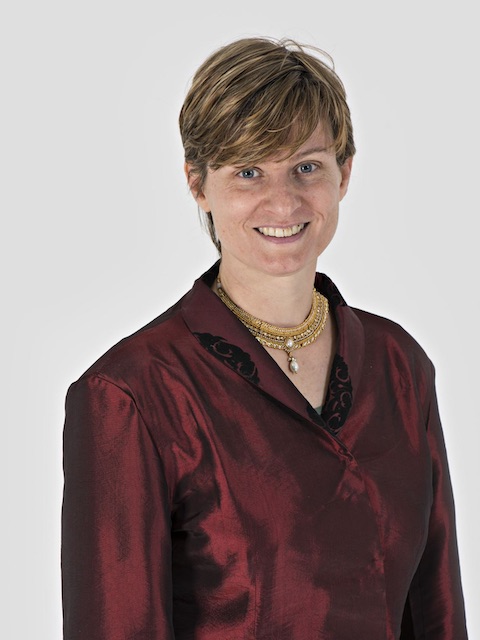Education:
- Ph. D. University of Chicago 1999
- M. Sc. University of Chicago 1993
- B. A. Haverford College, Haverford, PA 1992 Magna Cum Laude, high departmental honors
- Exchange Oxford University, Oxford, UK 1991
- Phi Beta Kappa 1991
Employment:
- 2006-2022: Lecturer, Senior Lecturer & Reader in Mathematics, Loughborough University.
- 2005-2006: Associate Professor of Mathematics, Lawrence University.
- 1999-2005: Assistant Professor of Mathematics, Lawrence University.
Professional Memberships:
- Member of the London Mathematical Society
- Fellow of the Royal Statistical Society
- Fellow of the Institute for Mathematics and its Applications
- Fellow of the Higher Education Academy
- Fellow of the Association for Women in Mathematics
- Member of sigma
- Member of European Women in Mathematics
Research leadership
- Director of Plastrax research group for the development of technologies for tracking and characterising microplastics
Research interests in statistics and data science:
- Analysis of high dimensional and functional data
- Metabolomics, including statistics for biomarker identification and process control
- Statistical methods for image data, particularly in physical and materials sciences
- Topological and geometric methods in statistics and machine learning
- Analysis of clinical data for epidemiology and medical policy making
- Signal processing for nanopore sensors
Research interests in mathematics:
- Elliptic PDE on noncompact and singular manifolds
- Pseudodifferential operator calculi
- Hodge and signature theorems for singular and noncompact manifolds
- Intersection cohomology and its generalizations
- Monopole and other moduli spaces arising in physics
- Numerical techniques for spectral problems with singular potentials
- Applications of category theory to systems engineering
Research videos and slides
Introductory talks
- Introduction to the b-calculus (3 lectures' slides): February 2008, HCM
- Introduction to pseudodifferential operators (video): August 2008, MSRI
- Hodge Theory (video): August 2008, MSRI
- L^2 Cohomology (5 lecture videos) August 2016, Fields Institute
Research talks
- A Hodge Theorem for Intersection Space Cohomology (video), Nov 2014, BIRS
- Topology and Compactifications of Moduli Spaces (video) August 2015, INI
- Architecture for the Working Mathematician (video) April 2020, MPIM
External research activities
Lecturer at graduate summer schools:
- “Partial differential equations and analysis on singular spaces” Hausdorff Center for Mathematics, University of Bonn, 2007;
- “Summer School on Singular Analysis” University of Oldenburg, 2012;
- "Topology, Stratified Spaces and Particle Physics Summer School" Fields Institute, 2016
External workshops/semesters organised:
- “Hausdorff Institute for Mathematics workshop in honour of Prof. Werner Mueller’s 60th birthday” HIM, 2010;
- “Topology of Stratified Spaces” MSRI, 2008;
- MSRI semester, “Analysis on Singular Spaces” 2008;
- “L^2-harmonic forms in geometry and string theory” ARCC, 2004
Honorary Officer for Equality, Diversity and Inclusion for the Royal Statistical Society
Chair of the Athena Forum
Videos related to Diversity
- Faces of Women in Mathematics
- Ada Lovelace Day Live
- LSE Women in Mathematics Seminar
- Royal Society Diversity Conference (minute 5:22:00)
- Interview with Times Educational Supplement (part 1, part 2)
- Women in OR and Analytics Launch
- Words of Women in Mathematics in the Time of Corona
Writings related to Diversity
- Royal Society Athena Prize announcement
- Womanthology: Clearing the paths to careers in maths for girls
- Womanthology: Celebrating awesome women in mathematics from around the globe
- AMBA Ambition Magazine: Meritocracy, bias and success: reward and recognition for diverse groups
- London Mathematical Society Newsletter: The Current Picture of Gender Diversity in UK Mathematics
Work and Awards
- Suffrage Science award
- Gamechangers for Diversity in STEM: Out and About in STEM
- Athena Forum Work Allocation Model Report
- An Impact Evaluation of the Athena Swan Charter (commissioned by Advance HE)
- External evaluation of Irish Research Council Gender Strategy
Current PhD Students
- Kerry Rosenthal: Statistical Methods for Compact Mass Spectrometry in Metabolomics (joint with M. Lindley, M. Turner, and E. Ratcliffe)
- Nayani Adhikari: Diagnosis and Retraining of Asthmatic and Dysfunctional Breathing Techniques Using Opto-Electronic Plethsymography (joint with S. Winter and M. Pain)
- Jennifer Ferris: Statistical Models of Lower Limb Soft Tissue for Integration into Multimodal Imaging Technologies (joint with S. Winter and D. Zhou)
Plastrax Research Group PhD Students
- Imoleayomide Ajayi: Data Science for Microplastics Characterisation (joint with Z. Zhou and M. Platt)
- Symiah Barnett: At-site Microplastic Monitoring for Rivers and Marine Environments (Funded by CENTA, joint with M. Platt and E. Baynes)
- Shadab Soheilian: Characterisation of Micro- and Nano-plastics in Complex Systems (joint with Z. Zhou)
- Elizabeth Christie: Developing New Analytical Technology for the Rapid Identification and Quantification of Micro/Nanoplastics (joint with M. Platt and E. Baynes)
- Beth Jordan: Engineered Polymetric Micro- and Nanoplastics (Supervisors F. Hatton, B. Cousins, E. Baynes)
Past PhD Students
- Lei Ye (Loughborough University, 2021)
- Steff Farley (Loughborough University, 2021)
- Yanis Bahroun (Loughborough University, 2020)
- Navid Bari (Loughborough University, 2017)
- Vladimir Lukiyanov (Loughborough University, 2016)
- Kamil Mroz (Loughborough University, 2014)
- Louis Omenyi (Loughborough University, 2014)
- Nikolaos Roidos (Loughborough University, 2010)
Students interested in undertaking a self-funded PhD with me are encouraged to get in contact!
Possible project areas include:
- Inverse problems for nanopore sensors
- Category Theory for architecture definition in systems engineering and digital twins
- Bayesian methods for data integration in materials science
- Shape statistics in biomechanics
- Mixed methods (AI/statistics/social sciences/humanities) for understanding mechanisms of inequality in science.
